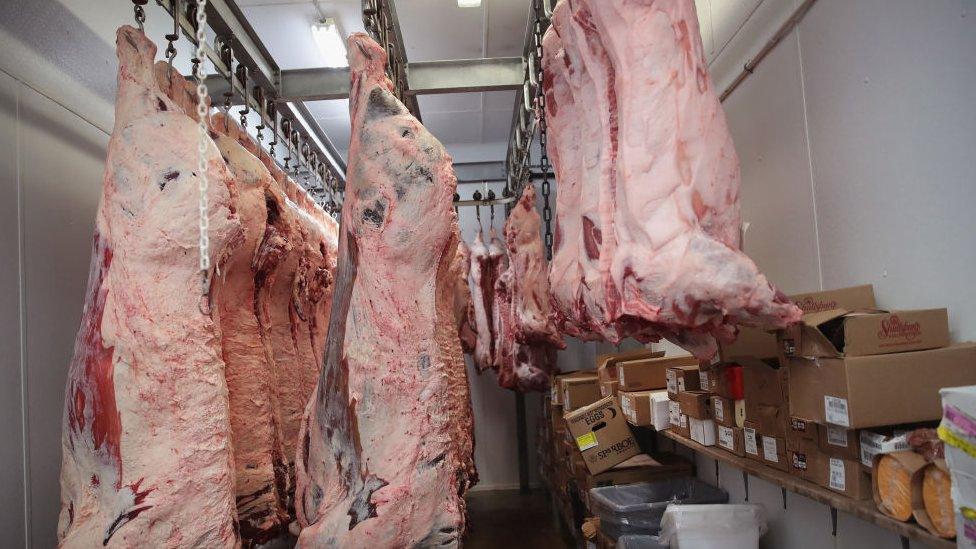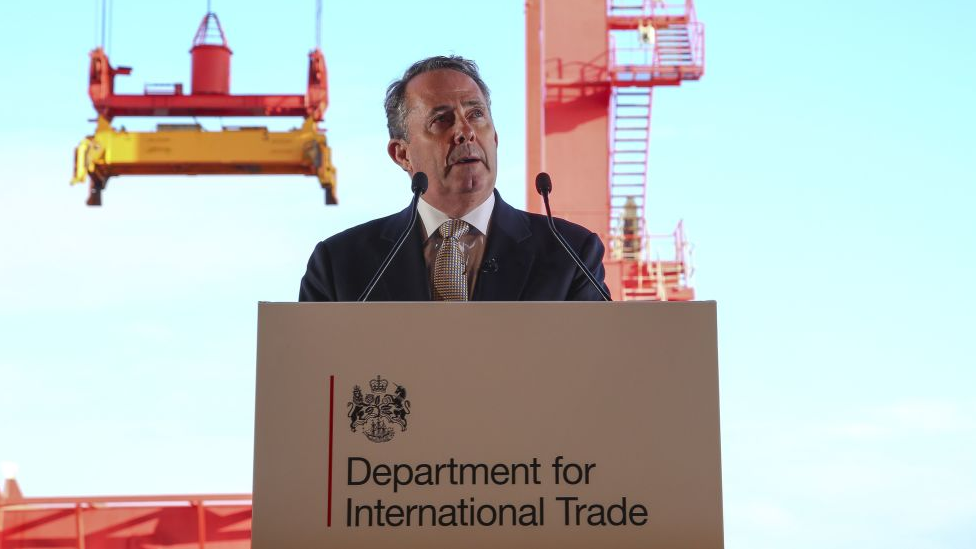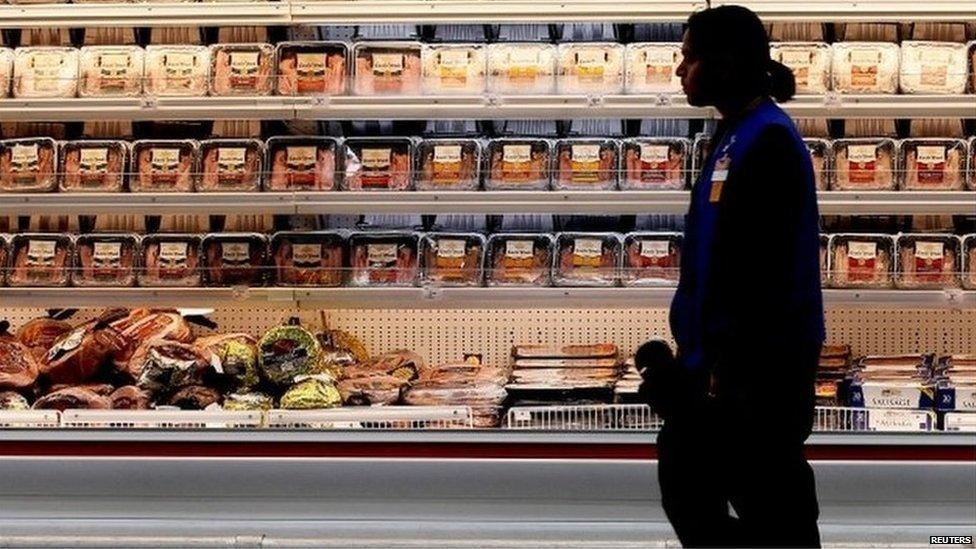US firms seek changes to UK standards on beef and drugs
- Published
- comments

US lobby groups for agriculture and pharmaceutical firms want UK standards changed to be closer to those of the US in a post-Brexit trade deal.
The meat lobby wants the sale of growth hormone-fed beef, currently banned in the UK and EU, to be allowed in the UK.
The drugs company lobby wants changes to the NHS drugs approval process to allow it to buy more of US drugs.
They are also asking US officials - who will hold a hearing later - to seek lower tariffs on agricultural goods.
The farming groups say any deal should move away from EU standards, including rules governing genetically modified crops, antibiotics in meats, and pesticides and herbicides, such as glyphosate.
Technology groups are also setting out their wishlists for any pact. Companies in this sector are against the UK's proposed digital tax.
The UK government has promised to look at ways of taxing US technology giants, such as Amazon and Google, which critics say do not pay their fair share of tax in the UK and therefore operate at an unfair advantage to physical companies.
'Once-in-a-lifetime' opportunity
The lobby groups' priorities were outlined in more than 130 comments submitted to the office of the US Trade Representative, external.
The office solicited the feedback to help develop US goals as it prepares to start trade talks with the UK after Brexit.
It is hosting a hearing in Washington on Tuesday, external on the subject.
US companies - especially in the agricultural sector - said they hoped the UK would prove more flexible than the EU.
UK negotiations could represent "a once-in-a-lifetime opportunity", the National Grain and Feed Association and North American Export Grain Association wrote.
The groups said a new deal could create a trans-Atlantic market "that can act as a bastion against the EU's precautionary advances and its ongoing aggressive attempts to spread its influence around the globe".

US agricultural groups have long complained about EU rules
Here is a summary of goals for key sectors:
Agriculture
US business groups from the agricultural sector have been among the most vocal, amounting to nearly a third of all comments.
The groups, which as well as meat, drug and technology firms include producers of olive oil, wine, nuts, fruit, and dairy products, say they want to see the UK reduce tariffs on food products. They also want to limit geographic labelling rules, such as those that bar US companies from using terms such as Prosecco.
The Animal Health Institute, which produces animal antibiotics, was among several groups that said it would not support a deal that did not address demands by the US agricultural sector.
"We have noted with concern statements by certain UK officials indicating a desire to exclude the agricultural sector from the negotiation and an intention of maintaining regulatory harmonisation with the European Union," it said.
"Should the UK adopt such policies, we see little basis for the negotiation of a bilateral trade agreement."
Health
The pharmaceutical industry is also gearing up for negotiations to start.
PhRMA, which represents drug makers in the US such as AbbVie Merck and Novartis, said it wanted a deal to address the barriers to access it currently faces in the UK, pointing to items such as government price controls.
It heavily criticised the current NHS drug approval system, pointing to the cap on the price of drugs as too restrictive, and highlighting insufficient healthcare budgets and "rigid" national processes.
The organisation, as well as some other groups, are also hoping to secure patent protections for certain types of drugs for at least 12 years, among other demands.
Technology
US firms also want to bar a proposed UK tax on digital services and prohibit rules requiring that data be stored locally.
There is also widespread support to push the UK raise the amount that triggers customs duties from £135 closer to the US level of $800 - more than £600.
Such a move would make it easier for small businesses to export to the UK, said companies including e-commerce site Etsy.
Many of the demands in the tech sector also surfaced during negotiations of the trade agreement between the US, Mexico and Canada.
- Published25 January 2019

- Published3 January 2019

- Published20 March 2018
